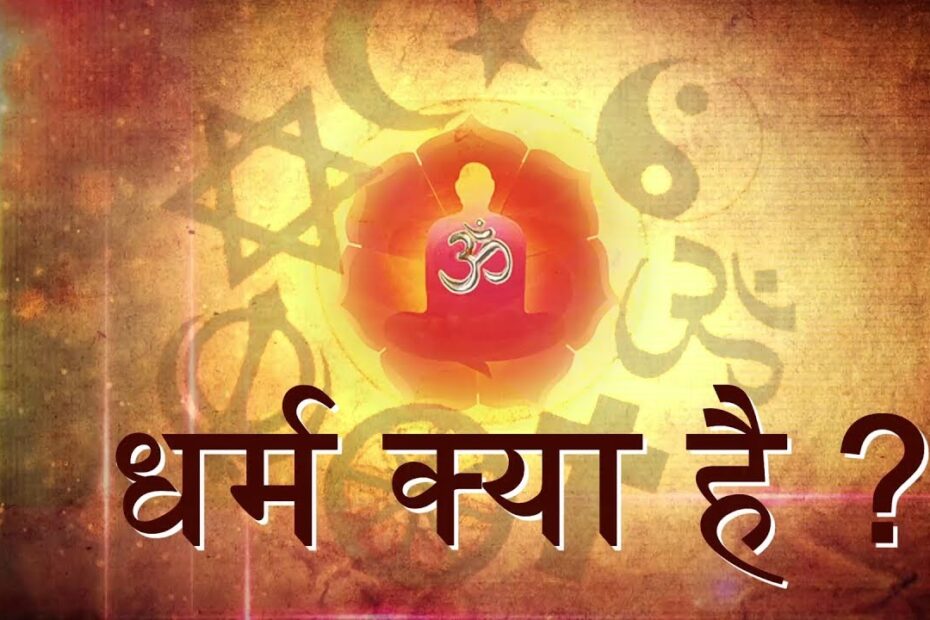Dharm is a Sanskrit word often used to refer to a religion. The origin of word ‘dharm’ is from the root word ‘dhr’ which means to sustain and the word dharm broadly represents the principles that sustains the universal balance including life. Now the question arises, what is the real meaning of dharm? The meaning of dharm is much broader than the word religion. Religion is related to certain beliefs and rituals but dharm is not limited to belief and practice, it includes duty, moral order, social order, political values and many others. In short we can say that it covers all areas related to human life. Another big difference between both is religion is rigid in nature whereas dharm is flexible in nature, it changes with time and situation. For example during the days of Mahabharata it was wrong to kill an opponent who is without a weapon but in the same war Arjun killed both Bhisma and Karan when both were not carrying any weapon, here the nature of purpose took the front seat in deciding the dharma.
The other question that arises is, does only Indian traditions have the concept of dharma? Four important religion of the world were born in India i.e Hinduism, Sikhism, Jainism and Buddhism and if we observe the philosophy of these religions ethics, duty and self discipline are given more importance, in some cases gods has been placed below the karma( a concept based on the conduct of a person). Whereas in religions like Islam and Christianity there is a concept of supremacy of God. The concept of Dharm does exist in other religions as well, various instructions have been given to the followers so that they can lead a disciplined life, but this discipline is mostly confined to the worship of God.
Hinduism beautifully balances spirituality with real life, seamlessly integrating divine principles into everyday existence. This harmony is best captured in the words of Lord Shri Krishna: “Work is worship.” In Hindu philosophy, Moksha—the ultimate spiritual liberation—is not reserved for ascetics alone but can be attained by anyone who performs their duties with sincerity and discipline. Karma has been given a very important position in Hinduism and these karma is based on the idea of cause and effect, which means your actions decide your results.
Hinduism does not demand renunciation of the world; instead, it encourages individuals to fulfill their responsibilities while remaining spiritually aware. Consider two individuals—one, a monk who has renounced worldly life and dedicates himself solely to prayer, and the other, a householder who engages in worldly affairs while fulfilling his duties to family and society. Despite their different paths, both are equally capable of reaching Moksha, as Hinduism values righteous action as much as ascetic devotion.
This inclusive approach makes Hinduism more than just a religion—it is a way of life. Over centuries, Hindu sages and scholars have explored life and its many dimensions, contributing to an unparalleled wealth of spiritual and philosophical literature, making Hinduism one of the most extensive and profound traditions in the world.

The ” must read ” Blog for everyone ✨